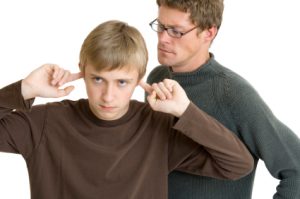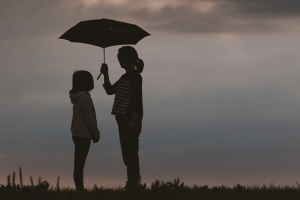Emotional Hunger
While loving our children is healthy, dependency or “emotional hunger” toward our kids can be harmful to their development. Child development expert Joyce Catlett discusses the distinction between hunger versus love and the negative effects of over-relying on our children for our own comfort and happiness.
About the Author
Joyce Catlett, M.A.
Joyce Catlett, M.A., author and lecturer, has collaborated with Dr. Robert Firestone in writing 12 books and numerous professional articles. Most recently, she co-authored Sex and Love in Intimate Relationships (APA Books, 2005), Beyond Death Anxiety: Achieving Life-Affirming Death Awareness (Springer Publishing, 2009) and The Ethics of Interpersonal Relationships (Karnac Books, 2009), with Robert Firestone PhD. Ms. Catlett began her career in psychology in 1972, working with autistic children at the Camarillo State Hospital Children’s Treatment Center in Camarillo, CA. A founding member of Glendon Association, she has been a national lecturer and workshop facilitator in the areas of child abuse prevention and couple relations. With Glendon, she has co-produced 40 video documentaries on a wide range of mental health topics. Ms. Catlett was also instrumental in the development and training of instructors in the Compassionate Child Rearing Education Program and in training mental health professionals in Voice Therapy Methodology.
Related Articles
One Comment
Leave a Reply
Understanding and Preventing Teen Suicide: CAMS-4Teens™ as an Effective Treatment Approach
Learn MorePopular Posts
- Empathy: How It Can Help Us All Right Now
In the aftermath of the most contentious election in recent history, many people are talking about the need for empathy…
- Psychalive - Psychology for Everyday Life
The Latest Rewiring Negative Thought Patterns: A Cognitive Guide for Teens It’s heartbreaking to hear your teen say things like,…
- Forgiveness: The Secret to a Healthy Relationship
Scientists who study forgiveness have long agreed that it is one of the most important contributors to a healthy relationship.
- User Agreement
This website is not intended in any manner to provide psychotherapy or mental health assistance.
- Why You Should Be the One Who Loves More
There is always a lot going on between two people in a relationship.
Related Articles
-

- What to Do When Your Teen Pushes You Away
April 12, 2016
8 ways to respond when your teen wants space All parents reach that point when they hang their head in…
-

- The Abuse of Overparenting
April 2, 2012
I recently watched my 11-year-old nephew play basketball in his local league. As I took in the scene of the…
-

- What Kids Really Need from Their Parents
March 25, 2019
Being a parent comes with a lot of pressure to do right by our kids. But boiled down to specific,…







A question directed at Ms. Catlett: when you comment that “so many parents mistake these feelings of emotional hunger for affection because the sensations feel the same internally” do you mean that parents are under the impression that their own feelings of dependency and need (for comfort, stability, support, love from others) are shared by their children, and that they are actually satisfying their children’s (imagined) needs by focusing a certain kind of attention on them? Or is it simply that the child is conveniently available to be used as a source of support? What exactly happens when parents do what the mother you described in the video did to her toddler on the plane? Looking at this statement closer raises a lot of questions about what exactly is going on. I do not doubt that psychologically immature parents use their children for their own purposes all the time, but I am interested in understanding that better. Thanks.